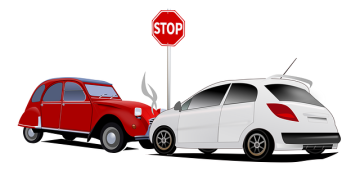Addiction is a chronic illness characterized by compulsive drug use that’s often difficult to control. Usually, the initial decision to take the drugs is voluntary, but repeated use causes brain changes that negatively affect a person’s ability to resist urges.
Drug addiction can affect mental and physical health, reducing the quality of life of the person addicted. Despite being aware of the negative consequences, people may still struggle to break free from its grasp. This is a common aspect of addiction, and it can be difficult to overcome without proper support and resources
It is important to note that addiction isn’t limited to a specific age group and may have different effects in various stages of life. Read on for a comprehensive guide on how addiction affects different age groups.
Drug Addiction In Older Adults
Most people link addiction problems to teens and younger adults. However, it’s important to note that older adults are also vulnerable to substance abuse and addiction. The highest rates of addictions are associated with alcohol abuse, misuse of prescription drugs, marijuana, and illicit drug use.
1) Causes Of Addiction In The Elderly
There are various reasons why people may resort to substance abuse later in life. For instance, significant life changes or health-related problems that cause emotional strain can provoke drug abuse, leading to full-blown addiction. Other triggers or causes of addiction in older adults include:
- Retirement
- Change in living situation
- Changes in income or financial strain
- Loss of a loved one
- Health decline, such as major surgeries
- Sleep problems
- Family conflicts
In the face of these challenges, they may turn to drugs to soothe their worries, stress, or anxiety in such situations. Unfortunately, as the frequency of use increases, the more the risks of addiction.
2) Symptoms Of Addiction In Older Adults
It can be difficult to detect addiction problems in older adults. Family, friends, and healthcare providers may mistake some symptoms as typical signs of aging. That’s because most signs of addiction are the same as those found in health conditions common in the elderly group. Additionally, most older adults are retired, so addiction doesn’t interfere with work or school.
However, while addiction can be harder to recognize in this age group, it’s crucial to watch out for unusual signs your elderly loved one displays. The following are some symptoms of addiction to pay attention to:
- Changes in sleeping patterns
- Unexplained bruises and injuries
- Slurred speech
- Memory problems or confusion
- Frequent falls
- Irritability and sadness
- Changes in eating habits
- Lack of interest in daily routine activities
- Withdrawal from social activities and relationships
- Loss of interest in hobbies or activities they once enjoyed
If you notice any of the above warning signs and are worried your loved one is developing an addiction to a substance, talk to them about your concerns. Some may have difficulty recognizing the need for help, so approach them with empathy. If you think that they’re in immediate danger, you can call emergency services.
3) Side Effects Of Addiction In Older Adults
Older adults are more susceptible to the effects of drugs since their bodies have a lower capacity to break down and absorb drugs. As people age, mental and physical health may start to deteriorate, making them more sensitive to drugs. Therefore, they’re more vulnerable to adverse consequences of addiction than younger groups.
Below are some common side effects of drug addiction in older adults:
- Increased risks of various health problems, including heart failure, high blood pressure, diabetes, liver failure, ulcers, and bone problems. If they already suffer from these conditions, substance abuse can worsen them.
- Impaired memory, which can affect decision making
- Confusion, hallucinations, and delusions
- Changes in coordination or poor motor skills resulting in accidents such as falls
- Nausea, vomiting, and abdominal pain which can affect appetite resulting in weight loss
Marijuana use has also been linked to chronic cardiovascular problems, adverse respiratory conditions, impaired memory, and altered motor skills at any age. Its harmful interaction with other prescription medication can worsen existing health conditions.
4) Treatment For Addiction In Older Adults
Once addiction is identified in older adults, seeking treatment options that are tailored seniors is essential. Since most mental health complications come with age, it’s best to choose a treatment center like the Alvarado Parkway Institute that addresses mental health and addiction disorders.
Here are some treatment approaches effective for older adults:
- Individual counseling: Provides older adults privacy to discuss their addiction problems without judgment. This improves self-awareness and maximizes a person’s willingness to embrace healthy coping skills.
- Medical approaches: Medical professionals can treat substance addictions through detoxification and specific medications. For instance, in case of opioid addiction, they may recommend medications such as methadone, naloxone, or naltrexone to reduce cravings.
- Group-based therapy: Interaction among members provides a common understanding of the problematic experiences of addiction and insights on how to adjust.
- Support groups: Members of a self-help group typically have similar personal experiences regarding addiction and can offer each other emotional comfort and moral support. This can decrease loneliness and isolation in older adults, improving their coping skills.
Older adults with severe addictive disorders may benefit from long-term treatment in rehab centers. These centers offer medical care and therapy while patients reside in a monitored environment. Combining different treatment options can lead to better outcomes, especially when managing other health conditions. Longer treatment durations may also be necessary for older adults.
Drug Addiction In Young Adults
Most young adults deal with changing situations in life, like settling down independently, starting a family, building a career, and other challenges related to life goals. These may contribute to stress, leading some to rely on drugs to cope. Without early intervention, the problem may escalate, leading to a combination of different addictions like smoking and drinking.
The most prevalent substance addictions in this age group are alcohol, marijuana, prescription drugs like opioids, and illicit drugs like cocaine and heroin. Particularly, young adults have a higher prevalence of alcohol consumption and addiction.
1) Signs Of Addiction
The following are some signs of drug addiction in young adults:
- Cutting ties with family or friends
- Poor balance
- Fatigue
- Poor outlook and attitude
- Changes in appetite
- Frequent headaches
- Sudden loss of weight
- Frequent illness
- Constant perspiration
If any of the above signs are evident, you should talk to your loved one about the problem and encourage them to seek professional help.
2) Adverse Effects Of Addiction On Young Adults
Below are some adverse effects of addiction in young adults:
- High risk of mental health problems such as depression, anxiety, personality disorders, and suicidal thoughts
- Potential health problems like stroke, heart, liver, lung, and kidney problems
- Impaired driving, which may cause accidents and injuries
- Poor performance at work due to impaired concentration and problem-solving skills
- Impairment in memory
- Stigma by peers
- A drain on the family’s financial resources since most of the money is used to buy drugs
Young adults may also be involved in drug-related crimes such as drug trafficking or possessing illegal drugs.
3) Treatment Options
Addiction treatment options for young adults will vary depending on their individual needs. Below are some treatment options that can apply:
- Detoxification
- Cognitive behavioral therapy (CBT) to teach the patient how to recognize the abnormalities and feelings related to drug addiction and how to cope healthily
- Dual diagnosis to provide treatment for both mental-related problems and addiction
- In-patient and out-patient rehabilitation programs. Consider out-patient treatment for mild addictions or if the individual attends school or works. In-patient treatment is suitable for severe addiction and allows for full-focus treatment with medication and therapy.
Aside from that, it’s vital to encourage sober young adults to join support groups after treatment to actively pursue recovery.
Drug Addiction Among Teens
The teenage brain is still developing, putting adolescents at a higher risk of substance addiction. The commonly abused drugs among teens include alcohol, tobacco, marijuana, and inhalants. They can also misuse prescription meds such as opioids prescribed for other people.
Notably, the increased social acceptance of drinking among younger adults can lead adolescents to perceive alcohol as harmless. Even so, most teens who experiment on alcohol due to curiosity are more likely to develop addictions.
1) Causes Of Drug Addiction Among Teens
The following are some factors that can cause substance addictions among teens:
- Self-esteem issues or feelings of social rejection
- Traumatic events such as accidents or child abuse
- Mental or behavioral health conditions like depression, hyperactivity disorder, or anxiety
- Peer pressure. If your teen’s friends abuse drugs, they might feel the pressure to try it out, and can lead to addiction.
Teens may resort to drugs to enhance athletic or academic performance. For instance, teens who participate in sports can use performance-related drugs or stimulants to do better in the field and meet the expectations of their coaches, parents, teachers, and friends.
2) Signs And Symptoms Of Addiction In Teens
Here are some warning signs that your teenager may be addicted to drugs:
- Problems at school or a sudden disinterest in school activities
- Neglected personal hygiene, such as grooming or bathing
- Money issues such as sudden requests for cash without a valid explanation
- Physical health problems like red eyes, weight loss, or gain
- Drastic changes in behavior, such as significant efforts to prevent other family members from entering their rooms or being secretive about meeting with friends.
- Fewer interactions with family members
It might be difficult to differentiate the signs of substance use and adolescence. Generally, it’s best to talk to your teen directly to discover the real problem. If they admit to taking drugs, you should intervene as a parent to prevent further addiction.
3) Negative Consequences Of Teen Drug Addiction
Some of the adverse effects of drug addiction among teens include:
- It’s associated with high-risk sexual behaviors and unplanned pregnancies
- It can worsen or increase the risk of mental health conditions like depression and anxiety. Notably, research has shown that marijuana can have detrimental effects on the developing brain. It may cause neurological problems, impairment in memory, hallucination, and risk of psychosis. All these affect concentration, problem-solving, and other learning abilities essential at school and thus can contribute to poor performance.
- It can increase the risks of developing heart, lung, liver, and kidney problems at a young age. Common drugs that can cause these problems include cocaine, inhalants, ecstasy, and cigarettes.
- It can result in unhealthy eating habits and unexpected weight loss or gain
- It can lead to risky behaviors like driving under the influence of alcohol
Drug addiction can be detrimental to the social life of most teens. Many may stop interacting with their peers and disengage from school programs such as clubs and sports. This may lead to stigmatization by peers. Most of all, addiction is a great obstacle to academic success among teens. That’s because they have a higher absence rate and are more likely to drop out.
4) Drug Addiction Treatment For Teens
Treatment programs for teens should be person-centered. Therefore, the medical professional should conduct a comprehensive assessment and design an individualized plan for your teen. Here are some treatment options they can use:
- Detoxification to remove traces of abused drugs in the body
- Medication management to reduce drug cravings
- Cognitive-behavioral therapy (CBT) to help the teen recognize, cope, and avoid high-risk situations that may provoke a relapse
- Family therapy designed to improve the role of family members in helping a teen with substance-related addiction make adjustments
Drug rehabs are recommended for teens with severe addictions since they provide more supervised and long-term treatment. Both in-patient and out-patient rehabilitation centers combine medical approaches and behavior therapy to treat substance addictions.
Conclusion
All age groups are vulnerable to drug addiction, and it’s associated with adverse effects. The above is a comprehensive guide on how addiction affects different age groups. Most importantly, if your loved one has addiction problems, getting them the treatment they need to improve their quality of life and future health is essential.



























